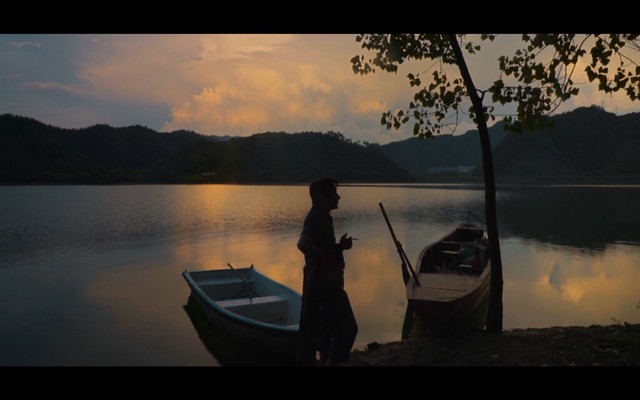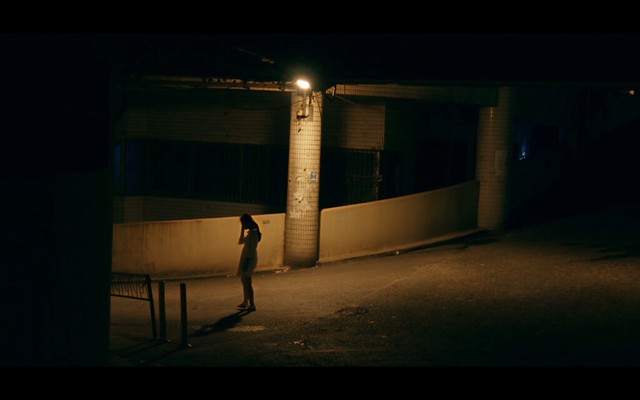



 Young Chinese filmmaker, Zhu Xin is apparently a big fan of Apichatpong Weerasethakul. His debut feature shows the Thai master's influence - languid visual style, abstract plot line, supernatural elements... etc. While not quite succeeding to pull off his idol's innate, spiritual lyricism, there are plenty to admire and chew on in Vanishing Days.
Young Chinese filmmaker, Zhu Xin is apparently a big fan of Apichatpong Weerasethakul. His debut feature shows the Thai master's influence - languid visual style, abstract plot line, supernatural elements... etc. While not quite succeeding to pull off his idol's innate, spiritual lyricism, there are plenty to admire and chew on in Vanishing Days. It's the beginning of hot summer days. The film takes place in picturesque Hangzhou- a glut of urban development surrounded by lush nature - parks, caves and lakes. The world is first seen from a wide-eyed teenage girl Senlin. It's everyday life during summer break. She does a lot of lounging around in her small apartment where she lives with her mom. Things change when her middle aged aunt Qui visits. Qui used to sail a freight ship with her deceased husband Bo. The point of views switch back and forth between Senlin and Qui.
There are couple of indicators that we are either seeing scenes from a parallel universe/dreams. Senlin's dad disappears in the beginning of the film after going into the cave and communicating with his dead son who is also named Senlin. We hear stories Qui tells Senlin's mom - about Qui and Bo being lost in an island, which we see later on the screen. Qui whispers in Senlin's ear in a taxi ride, "Tell mom that you want to come live with me. But don't tell her that I said so." Is Senlin Qui and Bo's daughter in an alternate reality? If this is all a dream, which one is real? It's as if two realities vying for its legitimacy in front of our eyes. Senlin's ordinary existence in the city and her boredom takes on another dimension in Zhu's waking dreams.
Helped greatly by sound design and editing, Vanishing Days is an intriguing film full of great potential. It's great to see the new generation of young filmmakers emerging from China is doing some extraordinarily cinematic stuff - Bi Gan (Kaili Blues, Long Day's Journey into Night) and Zheng Lu Xinyuan (Cloud in Her Head) come to mind. I wish Zhu's visual was a little stronger: Vanishing Days doesn't quite convey its waking dream aspect of the film.
No comments:
Post a Comment